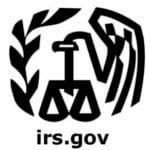 Tax Filing Advice for US Citizens Living Abroad
Tax Filing Advice for US Citizens Living Abroad
Filing taxes in your native country can be a headache. Doing taxes as a US expatriate, however, can be even more daunting of a task.
As an expat, you’ll need to do plenty of research to ensure you don’t miss any critical steps. You need to grasp the law, know the exceptions, and understand the loopholes to ensure that you aren’t taxed twice and, more importantly, don’t face severe tax penalties.
Today, we’re here to help make the US expat tax filing process as seamless as possible.
We’ve outlined every step of the tax filing process for American expats to give you everything you need to sail through tax season without issue.
How to File Your Taxes as an American Expat
1. Make Sure You Know the Deadlines
Having to scramble and stress over filing your taxes is never a fun experience. Make sure you know exactly when the filing deadline is and start the process as soon as possible.
The deadline to file your taxes is April 15. However, expatriates living abroad have the opportunity to request an extension. If the IRS grants your extension, your new filing deadline will be October 15.
2. Gather All Important Documents
Ensure you’ve collected all the necessary documents to file your return. This includes documentation of all income, such as:
- Foreign Bank Accounts
- Stocks and bonds
- Retirement Accounts
If you live in a country that uses a fiscal year for tax filing, you’ll want to have your end-of-year pay stub on hand. With your end-of-December pay stub, you can calculate your earnings for the previous calendar year. If applicable, you’ll need statements of investment income, the sale of stock, and maximum account balances.
3. File the FBAR and/or Form 8938
Determine if you need to file the FBAR and/or Form 8938.
Most expats will need to file one or the other. You must file the FBAR if you are an expat filing a U.S. tax return. Form 8938 requires that you report on foreign accounts as well as foreign assets.
Filing the FBAR is necessary when the total balances of your foreign financial accounts exceed $10,000. It’s important to note that if you are under the age of 65 and filing as single, the threshold for filing a U.S. return is $10,300.
FBAR reporting must include bank accounts, investments, and retirement accounts. The $10,000 threshold applies to all accounts, whether you have signature authority or own them jointly.
Related: Read about the best money management apps to help you manage your finances abroad.
Important Info to Know When Filing Taxes as an American Expat
1. Automatic Extension
Good news, expats. As an American living and working abroad, you get an automatic six-month extension on your FBAR. This is a big advantage for slackers who usually wait until the last minute.
But, if you wait until October 15th to file, you will incur interest charges and other fees. If you move back to America, you will need to file in April, but you may be eligible for certain deductions.
2. You (Probably) Need to File a U.S. Tax Return
In general, it’s always good to know if you’re eligible for certain benefits and tax breaks. As an expatriate, you’ll need to do your homework so that you know exactly what you should report, claim, and deduct. The reported income should include interest, dividends, rental income, and all wages from U.S. and foreign sources.
Anyone who is self-employed must report any income over $400. Whether you earned $401 or $400,000, you must file a U.S. tax return with your reported income.
Those who are self-employed don’t have to worry about their filing status. It’s also important to double-check and see what deductions you may be eligible for. It may be to your benefit to file even if you don’t have to.
3. Most American Expats Don’t Owe U.S. Taxes
As horrible as you may think the IRS is, they aren’t interested in taxing you twice on the same income. There are many exclusions, deductions, and credits already in place to help expats avoid double taxation.
One of these is the Foreign Earned Income Exclusion – a policy that allows you to exclude up to $100,800 of foreign income from U.S. taxation. In order to apply for the FEIE, you must pass one of two foreign residency tests:
- You must be physically present in a foreign country for 330 days out of a given 365-day period.
- You must have lived abroad in a foreign country for a full calendar year with no immediate plans to return to the U.S.
American expats paying U.S. taxes can also claim the Foreign Tax Credit against income that has already been taxed in the country in which they live. For example, if you owe $10,000 in U.S. taxes and already paid $9,000 in Swedish taxes, you would only owe the difference ($1,000) in U.S. taxes.
Many expats can also minimize their foreign-earned income with other exclusions. Do some research to see if you can take advantage of the Foreign Housing Exclusion to reduce your taxes further.
4. Make Sure You Track Your Travel Time
You can qualify as an expatriate using the Physical Presence Test, but you also need to have travel records. To pass the Physical Presence Test, you must physically live in another country consecutively for at least an entire tax year.
You may also qualify if you lived there for a minimum of 330 full days over a consecutive 12-month period. Days traveling by air (or by sea) to and from the U.S. do not count.
Keep your travel information organized and available at all times. A small error with your travel documentation could cost you a sizable fine. For more information on the Physical Presence Test, the IRS offers many helpful resources.
5. Think Twice Before You Renounce Your Citizenship
You can’t renounce your citizenship and disregard U.S. tax obligations. You must prove that you have filed U.S. taxes for five years before the date you plan to renounce your citizenship.
Depending on your net worth and income, you may have to pay an exit tax once you renounce your citizenship. The IRS uses this as a way to make sure you’re not trying to get out of paying your U.S. taxes.
6. You Must Report Rental Property Income
If applicable, your U.S. tax return must include any income earned from domestic or foreign rental properties.
Some expenses, such as rental property repairs, are deductible. Certain repairs are instantly deductible, while other property improvement costs take more time to process.
7. Request an Extension If You Need Time to Qualify for the FEIE
Depending on how late in the calendar year you moved out of the U.S., you may be eligible for the Foreign Earned Income Exclusion (FEIE). If you expect to move soon, file an extension request so you can use these benefits.
If the IRS grants your request, you will receive an extension to October 15. The other option is to file Form 2350, which allows you to buy some time while working on your FEIE.
The FEIE is not automatic. You must qualify for it and opt-in by completing Form 2555 or 2555-EZ. Once you receive FEIE approval, it will appear on your tax return each year thereafter.
If you decide you want to opt out of it, keep in mind you won’t be able to claim the exclusion for the next five years. This is unless the IRS gives you the approval to do so.
8. You Can Always Amend a Previous Return
The fact that you can always amend a return should give all taxpayers and expats peace of mind. If you make a mistake on your return, you can amend it. If you realize you didn’t report on certain income, you can make a change.
If you somehow forgot to claim every allowable deduction, you can file Form 1040X for credit. Whether you paid too much or paid too little, you can always amend your return.
Filing mistakes are common, especially for American expats in their first year abroad. It’s hard to know if you’ve filed your taxes with 100% accuracy. Should you find a mistake, file your amendment before the IRS catches the mistake.
Even if you’re forthcoming with incorrect information, you may still incur penalties. However, those penalties are often less than if the IRS finds the mistake on its own.
Expat Taxation FAQs
Do American expats pay U.S. and local taxes?
The short answer is yes. As an American, you must file U.S. taxes and report annual income even if you are a citizen of a foreign country.
If you are a U.S. citizen or green card holder working abroad, you have to file the appropriate forms with the IRS. Expats can enjoy special benefits and deductions, like the Foreign Earned Income Exclusion.
What is FATCA, and how will it impact me?
The Foreign Account Tax Compliance Act (FATCA) requires foreign banks to share information with the U.S. This financial information helps the U.S. combat offshore tax evasion.
If you have money in a foreign bank, the law requires that you provide that bank with a W-9 form. With the W-9 form, your foreign bank can follow FATCA rules.
Read more: FATCA and US Expats: What You Need to Know
Do I need to file U.S. taxes if I retire abroad?
The answer is yes. While you may be enjoying your retirement abroad, you will likely still have to pay U.S. taxes. As long as you are a U.S. citizen, you are responsible for your U.S. tax obligations.
Is an e-file available for a U.S. expat return?
The IRS and the U.S. Department of Treasury allow expats to e-file both tax returns and the FBAR. The IRS allows for e-filing of all federal expat tax forms, including all schedules.
The Financial Crimes Enforcement Network of the U.S. Department of Treasury recently mandated that the FBAR must be filed electronically.
Read: Five Tips for Saving Money When Filing your US Tax Returns as an Expat
As a U.S. expat, you’ll need to know many things to file your tax returns. If you can’t make the deadline, file for an extension. Gather all documents that reflect your income, interest, dividends, stock sales, and rental income. Determine if you must file the FBAR, Form 8938, or both.
Don’t forget to maximize your deductions and exclusions. Have documentation and proof ready for the Physical Preference Test. Determine if you qualify for the Foreign Tax Credit. Figure out if you can benefit from the Foreign Earned Income Exclusion and/or the Foreign Housing Exclusion.
If you’re considering renouncing your U.S. citizenship so you don’t have to pay taxes, think again. Renouncing won’t get you off the hook with the IRS.
Filing tax returns can be a complicated process for anyone. For U.S. expats, understanding the ins and outs of taxation can be quite a process. Seek the help of a tax professional before you start this process; it’ll be far less stressful.
The IRS expects some returns will have mistakes – try to find your mistakes before they do. You may have to pay a hefty fine if they find them first.
For more information on filing your U.S. tax returns as an expat, consult the IRS tax guides.
Companies that Provide Expat Tax Filing Services
